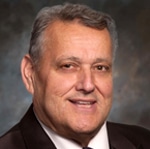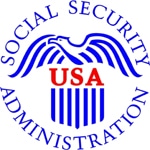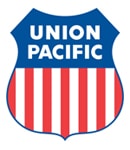
By Joe Nigro,
SMART General President –
The First SMART General Convention represented a new beginning for all of us. So, now is the time to take advantage of the opportunity and begin forging a path to ensure the dialogue between the leadership and convention delegates at our convention extends to an open communication between our membership and their elected leaders.
As a first step, we have to recognize that a dialogue can only exist when both parties participate and the quickest way to harm an organization is by ignoring the voice of the membership.
I believe our members can and will speak up when they trust that their voices will be heard.
The only way to build that trust is through transparency and accountability. If members feel they can trust their leaders, they will lend their support to the organization and make meaningful contributions to the discussion.
A quiet membership eventually devolves into an ailing union. A quiet membership becomes disinterested and apathetic, allowing its leaders to do as they please without any accountability.
Without involvement by the membership, the dues a member pays become nothing more than another unwanted deduction. That will not become the legacy of this organization.
I encourage everyone to take the opportunity to attend local union meetings, ask questions of your leadership, and learn about the ways your union can assist you and how you can assist your fellow brothers and sisters. The more active and aware you become, the better our union will represent you.
Also, keep in mind that within any organization news travels fast, but is often not always accurate. Sometimes rumors and innuendo are advanced by individuals on the outside whose goals do not align with yours.
Let your leaders know when you hear something that doesn’t seem right. Getting answers before we pass something on can stop those who wish to divide us and will show them we are a united union.
Let’s squash those rumors and get moving on making this union as strong and as vibrant as possible.
Finally, if you’re unhappy with the direction of the organization on any level, or feel you are not receiving the representation you deserve, call your leadership and let them know how you feel.
I strongly believe in having an open door policy that allows members to voice their concerns. I also believe that when it comes to leadership, I hold myself to the same standards that I expect of other elected representatives in this organization, along with our staff.
This is why I am including my telephone number here – (202) 662-0800 – so you can contact me with any of your questions or complaints.
You may not like my answers or what I tell you, but I do promise, you will at least have a voice.
Always remember, this is your union.
Fraternally,
Joseph J. Nigro
SMART?General President

 Canadian Pacific Railway says it has ended talks with U.S. counterpart CSX about a possible combination and plans no more discussions.
Canadian Pacific Railway says it has ended talks with U.S. counterpart CSX about a possible combination and plans no more discussions. Faced with public concern about the risks of crude oil shipments, the Union Pacific railroad last month boosted its rail inspection program on mountain passes in California and the West, dispatching high-tech vehicles with lasers to check tracks for imperfections.
Faced with public concern about the risks of crude oil shipments, the Union Pacific railroad last month boosted its rail inspection program on mountain passes in California and the West, dispatching high-tech vehicles with lasers to check tracks for imperfections. U.S. railroads are rallying customers, including lumber and steel companies, to fight a government proposal to slow trains hauling crude oil.
U.S. railroads are rallying customers, including lumber and steel companies, to fight a government proposal to slow trains hauling crude oil.